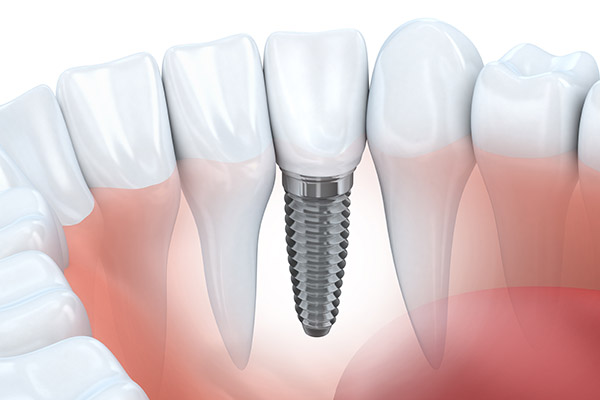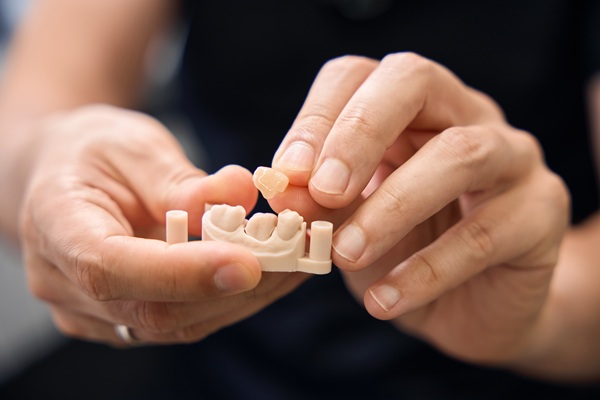What If I Don’t Get a Root Canal?

A root canal is a dental procedure that involves cleaning out the contents of the pulp chamber of the tooth. The procedure allows the dentist to save a tooth with a compromised chamber. Local anesthetics are often administered prior to performing a root canal, and that prevents the patient from feeling anything as the dentist works on their tooth.
Unfortunately, there are many misconceptions circulating about root canals. Many people have convinced themselves it is some scary procedure that should be avoided at all costs. That simply is not true as the most a person feels during a root canal are vibrations and pressure from the dentist working on the tooth.
Why you should not postpone your root canal
If you are one of the many people who have put off getting a root canal for longer than you should have, you might find yourself dealing with a variety of dental issues like an infection.
During a root canal, the dentist will give the patient a shot of an anesthetic and clean the canals inside the tooth's root. The dentist will also remove the damaged pulp in the pump chamber and disinfect the area. The chamber is sealed with a rubbery material known as gutta-percha to protect it from irritants in the mouth. The tooth might be covered with a crown for extra protection.
Dentists do not recommend root canals unless they are necessary. Issues that might lead to a need for root canal therapy include:
- A cracked tooth
- Significant tooth decay
- A broken tooth
Failing to get the treatment you need can lead to problems like:
Infection
If a dentist recommends a root canal, it is only a matter of time before the tooth becomes infected if it is not treated. An infection might not sound as scary as a root canal, but it can be a very painful condition. An infection can spread to a tooth's root and infect the jawbone. From there, it can infect the person's blood and make its way to vital organs, like the heart and brain, where it can be life-threatening.
An extraction
When an infection becomes too severe to be treated with a root canal, the dentist might opt to extract it. Extraction is more invasive than a root canal and it comes with a 10-day recovery period. Teeth that have been extracted might also have to be replaced with an oral prosthetic like an implant. All this could have been avoided by simply getting a root canal earlier.
Do you need a root canal?
If the thought of getting a root canal sends shivers down your spine, that is the result of the misinformation you have learned over the years. Dentists perform root canals quite often, and most patients feel better when the procedure is over.
A root canal does not cause pain, it helps you to get rid of it. Call or visit our Atlanta clinic to learn more about how root canal therapy can be used to save your teeth.
Request an appointment here: https://atlantapamperedsmiles.com or call Pampered Smiles at (404) 891-9489 for an appointment in our Atlanta office.
Check out what others are saying about our services on Yelp: Read our Yelp reviews.
Recent Posts
Many circumstances might cause you to look into replacing a missing tooth, regardless of your age. Those who do not take care of their teeth and gums are at particularly high risk for tooth loss, as both gum disease and decay can damage gums, tooth roots, and teeth. Cavities can lead to significant damage, as…
Dental crowns are a common restorative solution that protects damaged teeth, improves appearance, and restores proper function. The placement process follows a common step-by-step restoration. Understanding this process can help alleviate any uncertainty you may have before an upcoming appointment and prepare you for what you can expect. Each stage of the dental crown placement…
Implant overdentures may be the best investment when it comes to options for replacing missing teeth. Although you have many options for replacing missing teeth, implant overdentures may be the right option for you. Implant overdentures are known as “snap-on dentures” because the denture connects to the implant via a snap assembly in which a…
Clear braces have become a popular choice for individuals seeking to straighten their teeth while maintaining a discreet appearance. Both adults and teens now have access to innovative orthodontic treatments that focus on comfort, aesthetics, and effectiveness. If you are considering clear braces for yourself or your child, it is essential to understand how these…


